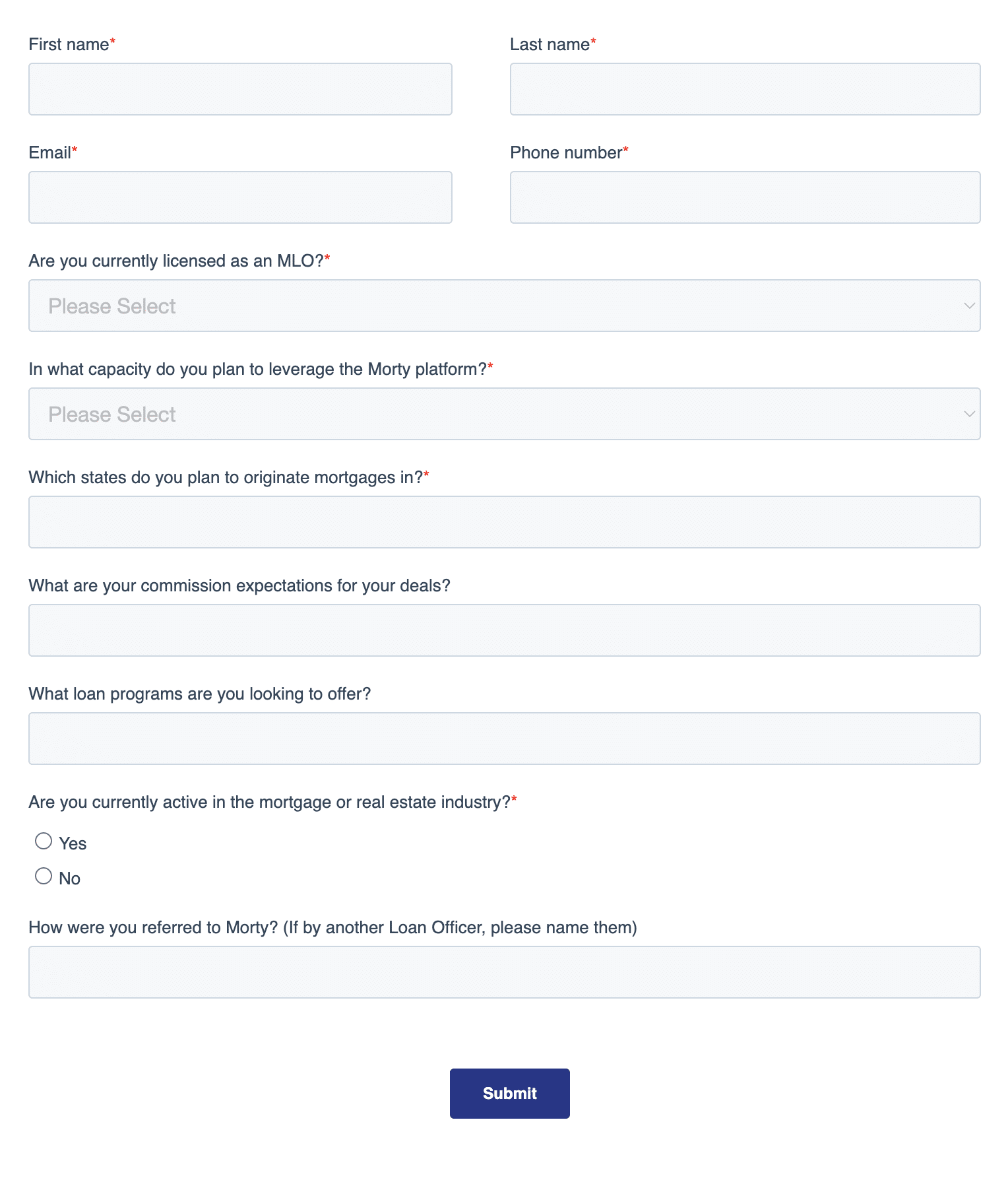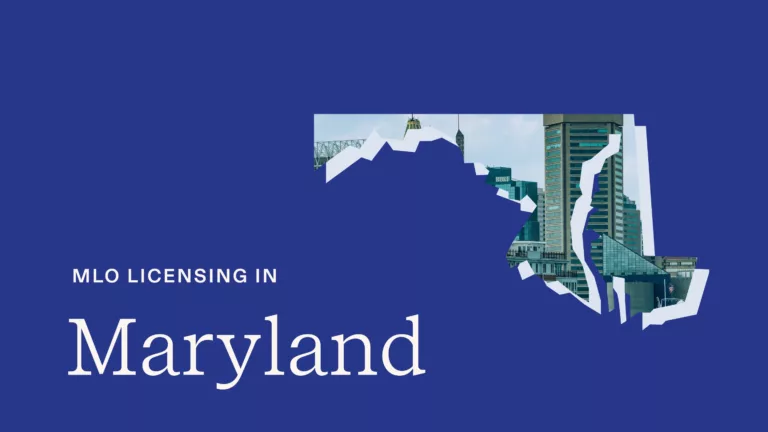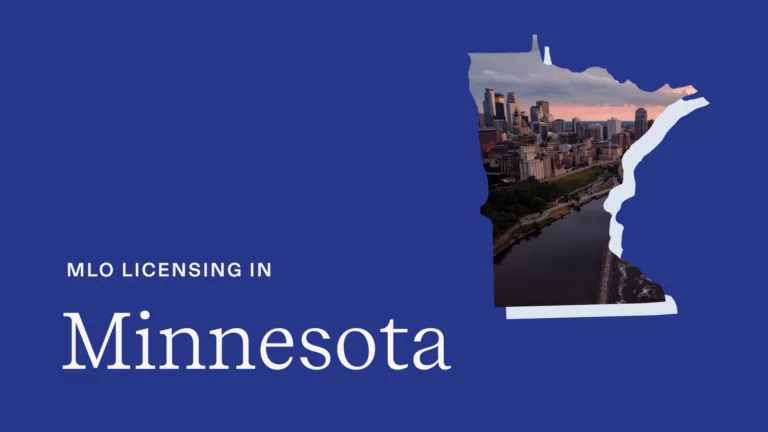With almost 8,000 licensed loan loan officers and 75,000 home sales in Colorado, establishing a mortgage brokerage in Colorado is an exciting opportunity. The first step to setting up a brokerage in Colorado is crucial, you must obtain the necessary licenses. The licensing process is essential for ensuring that your operations comply with state regulations and that you can legally provide mortgage services. In this guide, we’ll walk you through the key steps to get licensed as a mortgage broker in the state of Colorado.
Fulfill Licensing Requirements
The Colorado Division of Real Estate is the regulatory body overseeing mortgage-related activities in the state. Before venturing into becoming a licensed mortgage broker, it’s essential to start as a licensed loan officer. If you’re not yet licensed, Morty offers comprehensive support through our Blueprint offering, guiding you through the pre-licensing process and providing assistance with the SAFE exam. Ensure you’ve fulfilled the educational requirements necessary for a loan officer license in Colorado.
Attain the Required Work Experience
In addition to education, many states, including Colorado, require candidates to have practical experience in the mortgage industry. This could involve working as a loan officer, loan processor, or in a related role.
Complete Background Checks
Expect a thorough background check as part of the licensing process. This includes a criminal background check and a credit report. Ensure your financial history is in good standing, as it may impact your eligibility for licensure.
Submit Application and Fees
Once you’ve met the educational requirements, gained the necessary experience, passed the exam, and cleared background checks, submit your application for a mortgage broker license to the Colorado Division of Real Estate. Be prepared to pay the required licensing fees, which can vary.
Obtain a Surety Bond
Many states, including Colorado, require mortgage brokers to obtain a surety bond as part of the licensing process. The bond serves as a form of financial protection for consumers. The amount of the bond varies, so check the specific requirements with Colorado Division of Real Estate.
Submit Quarterly Reports to NMLS
Every quarter, NMLS requires you to submit a Mortgage Call Report (MCR). MCRs provide a detailed overview of a mortgage company’s or individual’s lending activities, financial performance, and compliance with regulatory requirements. These reports serve as a vital tool for regulatory bodies to monitor and assess the mortgage industry, ensuring adherence to applicable laws and safeguarding the interests of consumers.
Complete State Examinations
Every state, including Flordia, will randomly select companies to complete state examinations. These exams are similar to the MCR but can include more detailed requests like sample borrower correspondence.
Maintain Continuing Education
After obtaining your license, the learning process doesn’t stop. Colorado, like many states, requires mortgage professionals to complete continuing education courses to stay informed about industry updates, regulations, and best practices.
Renew Your License
Mortgage broker licenses typically have a renewal period, often on an annual basis. Ensure you stay on top of license renewal requirements, including any continuing education credits, to maintain your legal standing.
Work with Morty
Navigating the licensing process for a mortgage brokerage in Colorado requires diligence, education, attention to detail, time (up to a few months) and money. As an alternative to doing this all yourself, consider working with Morty to handle the licensing, compliance, and infrastructure while you focus on what matters most to you — your clients and growing your business. And with Morty you can be up and running with your mortgage business in as little as month!








